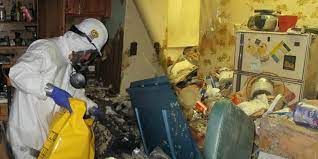The Path to Becoming a Certified Biohazard Cleaning Professional
Becoming a certified biohazard cleaning professional involves a structured and rigorous journey that equips individuals with the necessary skills to handle hazardous materials and challenging environments. Check out: biohazard cleaning in the uk
The first step in the process is understanding the qualifications necessary for entry into this specialized field. While educational backgrounds may vary, aspiring biohazard cleaning professionals often have a high school diploma or equivalent. Beyond formal education, a commitment to learning and adhering to safety protocols is crucial for success in this demanding profession.
Training programs designed for biohazard cleaning professionals cover a wide range of topics, ensuring that individuals are well-prepared for the challenges they may encounter. These programs typically include modules on biohazard categories, the proper use of personal protective equipment (PPE), decontamination procedures, and the ethical considerations associated with this line of work.
Hands-on training is a key component of the certification process. Trainees have the opportunity to apply theoretical knowledge in real-world scenarios, simulating the conditions they will face during actual biohazard cleanup. This practical experience is invaluable, allowing individuals to develop the skills needed to handle various situations effectively.

Certification, often issued by recognized organizations or regulatory bodies, is a formal acknowledgment of an individual’s proficiency in biohazard cleaning. Achieving certification requires successful completion of the training program and, in some cases, passing a certification exam. This credential not only validates a professional’s expertise but also enhances their credibility within the industry.
Continuous education is a hallmark of biohazard cleaning professions. Given the evolving nature of biohazardous materials and safety protocols, professionals are encouraged to stay informed about the latest developments in the field. This commitment to ongoing learning ensures that biohazard cleaning professionals remain at the forefront of best practices and advancements.
Ethical considerations play a significant role in the training and certification of biohazard cleaning professionals. Trainees learn about the importance of empathy, sensitivity, and professionalism when dealing with emotionally charged situations. Understanding the human aspect of their work is essential, as biohazard cleaning professionals often interact with individuals facing traumatic circumstances.